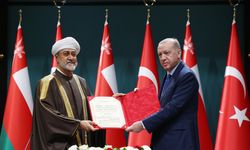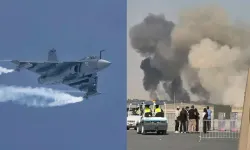Just hours after a US-brokered ceasefire between Iran and Israel came into effect early Tuesday morning, tensions flared once again as both sides accused each other of violating the fragile agreement—raising serious doubts about the truce’s viability.
The ceasefire, announced late Monday by US President Donald Trump, was intended to end what he called the "12-Day War"—a sharp escalation that began with Israeli strikes on Iranian nuclear and military facilities on June 13 and continued with Iranian retaliatory missile attacks, including a strike on a US airbase in Qatar. The ceasefire was set to begin at 04:00 GMT Tuesday, with Washington pressing both sides to halt hostilities.
However, within hours, fresh allegations emerged. The Israeli Defense Ministry claimed that missiles had been fired into northern Israel from Iranian territory on Tuesday morning, triggering air raid sirens and prompting an immediate military response. Israeli Defense Minister Israel Katz said he had ordered the Israel Defense Forces (IDF) to launch a series of “intense strikes” in Tehran.
“I instructed the IDF, in coordination with the Prime Minister, to continue the intense strike activity in Tehran to neutralize regime targets and terrorist infrastructure,” Katz said in a statement. He justified the action by accusing Iran of violating the ceasefire terms by launching new missiles toward Israeli territory.
Iran has categorically denied the accusations. The Iranian Armed Forces issued a statement saying: “Iran has not launched any missiles toward occupied Palestinian territories in the past few hours.” The Supreme National Security Council echoed this position, warning of a decisive response to “any act of aggression” and portraying the ceasefire as a result of what it described as Iran’s military success.
“We achieved a victory that forced the enemy to accept defeat and unilaterally halt its aggression,” the Council said.
Russia, which had not been directly involved in the mediation but remains a key power in the region, responded with caution. Speaking at the 11th Primakov Readings International Forum in Moscow, Russian Foreign Minister Sergey Lavrov welcomed the idea of a ceasefire but questioned its durability. He acknowledged that while the US and Qatar had played roles in persuading Israel and Iran respectively to accept the deal, reports of renewed hostilities cast doubt on its enforcement.
“Let us not make any hasty conclusions based on fragmentary information,” Lavrov said. “But we are for peace.”
While Washington has yet to respond officially to the latest developments, the Biden administration now faces the daunting task of keeping both parties committed to a ceasefire already undermined by mutual distrust and conflicting narratives.
The situation remains volatile, with both Iran and Israel vowing retaliation if attacked again. As the international community watches closely, hopes for a lasting de-escalation appear to be fading—replaced once again by the specter of broader regional conflict.







